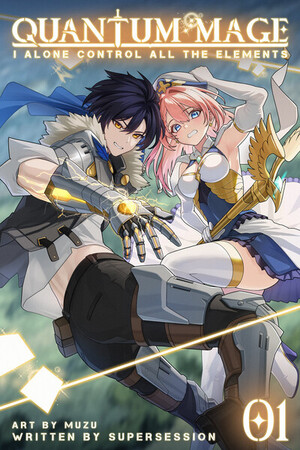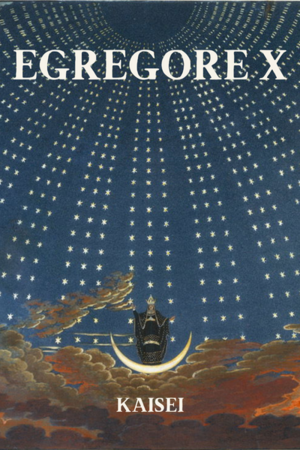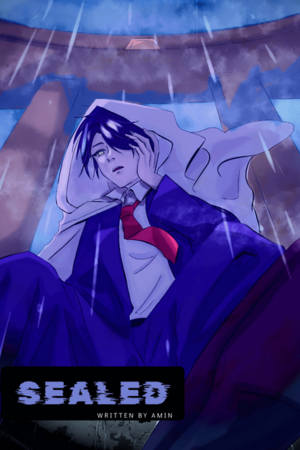Chapter 7:
Hasuna and the Lost Hope
The Third Rain
Morning in Kinahrejo arrived with the chirping of jungle birds and the bustle of villagers starting their routines. Children fetched water, farmers readied hoes and sickles, and merchants wrapped herbs and roots into baskets. Amid it all, a little boy sat alone under a fig tree, his eyes staring at the mist clinging to the hills.
Hasuna hadn’t spoken much since yesterday.
Usually, he woke up full of energy, eager to explore the village or bother the local weavers with his innocent questions. But something had changed. That morning, he didn’t even touch his breakfast. His wooden toy—a small hand-carved boat—lay forgotten on the ground.
Hasan watched him.
After finishing his routine training, he slowly approached. “Hey, navigator,” he said, using their little joke from back home. “Where are we heading today?”
Hasuna didn’t turn. “Nowhere.”
Hasan sat beside him. “That doesn’t sound like you. What’s wrong?”
Silence.
Then, softly: “I miss Mama.”
The words hung heavy in the air.
Hasan placed a hand on his son’s shoulder. “I know.”
Hasuna finally looked up. “She does look like Mama… but she’s not Mama. I tried pretending. But now I know Mama won’t come back.”
Hasan’s throat tightened. He had prepared himself for this moment for weeks—he knew it would come—but still, hearing it from his son’s mouth cut deep.
“No,” Hasan replied quietly. “She isn’t your mother. But it’s okay to miss her.”
Tears began to pool in Hasuna’s eyes. “Why did the rain bring us here? Why didn’t it bring Mama too?”
Hasan had no answer.
He embraced Hasuna. The boy didn’t resist. He hugged back tightly, his face buried in Hasan’s shoulder.
That afternoon, Karin found them sitting by the river. She had noticed Hasuna missing all day and brought a piece of warm rice bread wrapped in cloth. But seeing the boy’s red eyes and quiet demeanor, she knew better than to force conversation.
She sat nearby. “When I was little,” she said softly, “I believed the wind could carry the voices of those we missed. I’d climb the hills and whisper to the wind, hoping my voice would reach someone far away.”
Hasuna looked over, curious. “Did it work?”
Karin smiled gently. “I don’t know. But it helped me not forget.”
Hasuna went silent again. Then he stood and walked to the riverbank, cupping his hands around his mouth.
“Mama,” he called, voice trembling. “I miss you.”
Silence.
Then the wind stirred the leaves overhead. Branches rustled. And in that moment, something in Hasuna’s expression softened.
In the following days, Hasuna grew more withdrawn. He stopped playing with the other children. He stopped asking questions.
He began drawing in the dirt with a twig—mostly shapes of boats, stars, and sometimes a woman with long hair. Hasan watched from a distance, torn between giving him space and pulling him closer.
Eventually, it was Karin who stepped in.
One evening, she brought Hasuna to her herb room. Dried leaves, jars, and bundles of flowers lined the walls. She handed him a small jar filled with thick roots.
“This is soara bark,” she said. “It only grows under the full moon and in soil touched by both fire and flood. It’s stubborn. But it always survives.”
Hasuna stared at the root. “Why are you showing me this?”
“Because sometimes, the strongest things come from the most broken places.”
He didn’t answer, but he accepted the jar and placed it gently on his lap.
That night, he slept with the jar beside his pillow.
The next morning, Hasuna approached Karin while she was drying leaves behind the house. In a quiet voice he said, “Mama liked the color purple. At home, she always wore a purple shawl when she cooked. And every afternoon, she’d take me to sit on the porch to watch the sky. She said, at the last third of the night, above the stars, our prayers go straight to God.”
Karin was silent for a moment. Then she stroked Hasuna’s hair. “Then maybe tonight, we can watch the sky together. And send our prayers up.”
Hasuna nodded. His eyes looked calmer.
Meanwhile, Hasan continued his training. With Ozcan, he meditated every day, trying to reach inner stillness to sense the divine energy. But lately, his mind often wandered to Hasuna.
“He feels the same weight as you do,” said Ozcan. “But he’s younger. He needs someone to show him that even heavy burdens can be carried—and walked with.”
Hasan nodded.
That night, he invited Hasuna to climb a hill near the Cliff of Memories. The boy hesitated at first, but followed. They sat in silence for a long while, gazing out over the valley.
“Do you think Mama would like a place like this?” Hasuna asked.
Hasan smiled. “She would’ve loved it. She liked green valleys. And stars. Remember how she used to wake us up to watch them?”
Hasuna nodded. “Do you think she can see us now?”
Hasan looked up at the twilight sky. “Maybe. Maybe the rain didn’t take us away from Mama. Maybe it brought us to a place where we can learn how to carry her love wherever we go.”
The boy leaned against his father. Together, they watched the first star appear.
And for the first time in days, Hasuna whispered, “I want to make another boat.”
Hasan smiled.
Hope wasn’t gone.
It had simply changed form.
A few days later, Karin began to involve Hasuna in helping her in her herb garden. At first, Hasuna simply sat quietly next to a pile of roots, but gradually, his hands became busy too—sorting leaves, organizing seeds, or tying dried flowers with banana-fiber strings.
That afternoon, they sat under a wild guava tree, a basket full of plants between them. The air was warm and fragrant with the scent of freshly picked leaves.
"If you could plant anything, what would you plant?" Karin asked suddenly.
Hasuna shrugged. "I don't know. Maybe... lavender. Because it smells nice. Mama liked nice smells."
"Did your mama like to garden too?"
"She liked to grow flowers in little pots. Mostly in the afternoon. But sometimes she also grew small tomatoes on the balcony," Hasuna replied, snapping a dry stem.
Karin smiled. "You have a lot of memories about your Mama, huh?"
Hasuna nodded. "Sometimes I'm afraid I'll forget her voice."
Karin looked at him gently. "If you can remember how it felt to be hugged, or how she smiled—those are part of her voice too. The kind that doesn’t use words."
Hasuna looked down, then gazed at Karin for a long moment.
"I know you're not Mama. But... is it okay if I keep telling you stories about her?"
"Of course it is," Karin replied, her voice barely a whisper. "And if you'd like, next week we can plant lavender together. In a little pot."
Hasuna smiled faintly. His first smile that day.
That night, Hasuna didn’t sleep in his usual spot. He came quietly to the room where Karin slept and stood at the door.
"I had a nightmare," he said softly.
Karin quickly got up, welcomed him in, and let Hasuna sleep beside her.
In the darkness, Hasuna murmured, "When I was little, Mama used to whisper a prayer before I slept. She said it was so I wouldn't be afraid."
"What was the prayer?" Karin asked gently.
Hasuna thought for a moment. "She said, ‘God, protect Hasuna in dreams and in the waking world. Don’t let his heart go empty.’"
Karin pulled the blanket tighter around his small body. "Then tonight, I’ll pray the same thing."
Hasuna smiled faintly in the dark.
The next morning, Karin found a small clay pot outside her door. Inside it were two young lavender sprouts, with a note written in shaky handwriting:
"So Mama can see from the stars. Hasuna & Sis Karin planted it."




Please sign in to leave a comment.